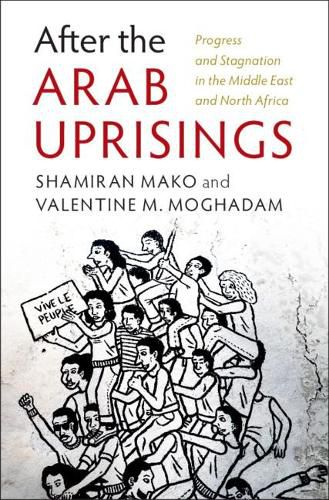Readings Newsletter
Become a Readings Member to make your shopping experience even easier.
Sign in or sign up for free!
You’re not far away from qualifying for FREE standard shipping within Australia
You’ve qualified for FREE standard shipping within Australia
The cart is loading…






Why were some, but not all the Arab mass social protests of 2011 accompanied by relatively quick and nonviolent outcomes in the direction of regime change, democracy, and social transformation? Why was a democratic transition limited to Tunisia, and why did region-wide democratization not occur? After the Arab Uprisings offers an explanatory framework to answer these central questions, based on four key themes: state and regime type, civil society, gender relations and women’s mobilizations, and external influence. Applying these to seven cases: Tunisia, Egypt, Morocco, Bahrain, Libya, Syria, and Yemen, Valentine M. Moghadam and Shamiran Mako highlight the salience of domestic and external factors and forces, uniquely presenting women’s legal status, social positions, and organizational capacity, along with the presence or absence of external intervention, as key elements in explaining the divergent outcomes of the Arab Spring uprisings, and extending the analysis to the present day.
$9.00 standard shipping within Australia
FREE standard shipping within Australia for orders over $100.00
Express & International shipping calculated at checkout
Why were some, but not all the Arab mass social protests of 2011 accompanied by relatively quick and nonviolent outcomes in the direction of regime change, democracy, and social transformation? Why was a democratic transition limited to Tunisia, and why did region-wide democratization not occur? After the Arab Uprisings offers an explanatory framework to answer these central questions, based on four key themes: state and regime type, civil society, gender relations and women’s mobilizations, and external influence. Applying these to seven cases: Tunisia, Egypt, Morocco, Bahrain, Libya, Syria, and Yemen, Valentine M. Moghadam and Shamiran Mako highlight the salience of domestic and external factors and forces, uniquely presenting women’s legal status, social positions, and organizational capacity, along with the presence or absence of external intervention, as key elements in explaining the divergent outcomes of the Arab Spring uprisings, and extending the analysis to the present day.